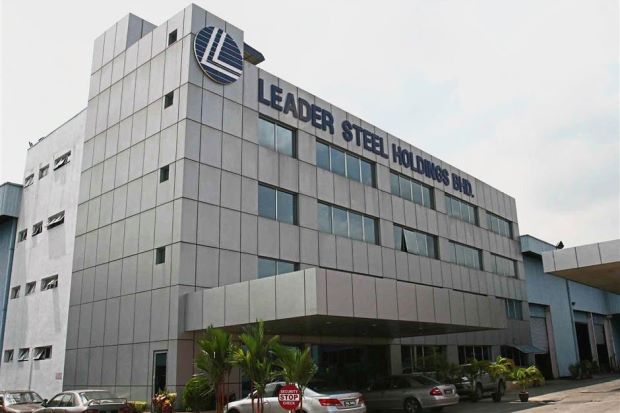Leader Steel to raise output
bali
Publish date: Wed, 11 Oct 2017, 11:05 AM
BUKIT TENGAH: Leader Steel Holdings Bhdexpects its steel pipe output to increase by more than 20% this year due to the shortage of steel products and rising demand for steel in Malaysia.
The group’s revenue and bottomline for the financial year ending Dec 31, 2017 is expected to reach a record-breaking level, thus making the results the best for the past five years.
Group managing director Datin Tan Pak Say told StarBiz there was a shortage of steel products in the market, following the significant contraction in the output of steel products from China.
“The shortage was particularly very serious in the past three months and is expected to worsen by the end of the year,” she added.
According to a report by General Steel Corp (GSC), steel production in China would decrease by more than 165 million tonnes by 2020.
“This is a 20% decrease in production for the world’s leading steel producer. The drop in China’s output would drive up the prices of steel,” Tan said.
In addition, China had promised to reduce its steel production capacity by 45 million tonnes in 2017 to tackle the steel glut situation.
For example, the price of hot-rolled coil has increased to US$630 per tonne, up about 20% from a year ago.
Tan said steel prices are expected to continue to increase and “Leader Steel will also have to increase the selling price of its steel pipes by about 25%”.
According to the GSC report, steel supply is not expected to outweigh demand for much longer.
“With China dropping its steel output so dramatically, the global steel supply is expected to be less than demand, resulting in higher steel prices without relief in the years to come,” said the report.
Tan said the group would allocate an initial RM10mil to expand its plant in Kapar, Klang.
“This will double-up the production capacity of the Kapar facility by mid-2018 to meet the needs of customers, particularly from the southern and central regions of the country,” explained Tan.
On the group’s plan to produce “rebar products” or steel concrete reinforcing bars, Tan said Leader Steel would use its existing hot-rolling mill plant in Kuching to start production in the next six months.
“Initially, we are looking at producing about 10,000 tonnes of rebars per month, which will gradually be ramped up,” she added.
Tan said it was timely to start the production of steel rebars for both the local and export markets.
The recent imposition of the 13.42% safeguard duty on imported steel concrete bars from 40 countries, which include China, has made it expensive for local hardware companies to buy from overseas.
“With this safeguard duty in place, the imported steel rebars will find it hard to compete with us,” Tan said, adding that the demand in South-East Asia is also rising particularly from Vietnam, Myanmar and Indonesia.
“These countries need to import from overseas, as their own steel supply may not be able to handle the increasing demand,” she said.
On the group’s trading business, Tan said some 20,000 tonnes of minerals such as manganese ore were exported to China in 2016.
“Despite the slowdown in China’s real estate and construction sectors, we are still able to secure consistent orders, thus gaining a strong foothold in the Chinese market.
“We are confident that the market will improve as the price for manganese continues to rise, moving forward,” she said.
Meanwhile, Tan is positive on the prospects of the steel industry in Malaysia.
Bank Negara has projected the country’s economy to expand between 4.3% and 4.8% this year. It has also forecast an 8.8% growth in the construction industry, a sector which consumes large quantities of steel products.
“This growth will be driven by domestic demand and support from the external sector,” Tan added.
For the first half of 2017, the group posted a pre-tax profit of RM5.1mil on the back of RM107mil in revenue, compared with RM3mil and RM79mil in the corresponding period of 2016.
Related Stocks
| Chart | Stock Name | Last | Change | Volume |
|---|
Market Buzz
More articles on sharenews
Created by bali | Apr 30, 2021





















